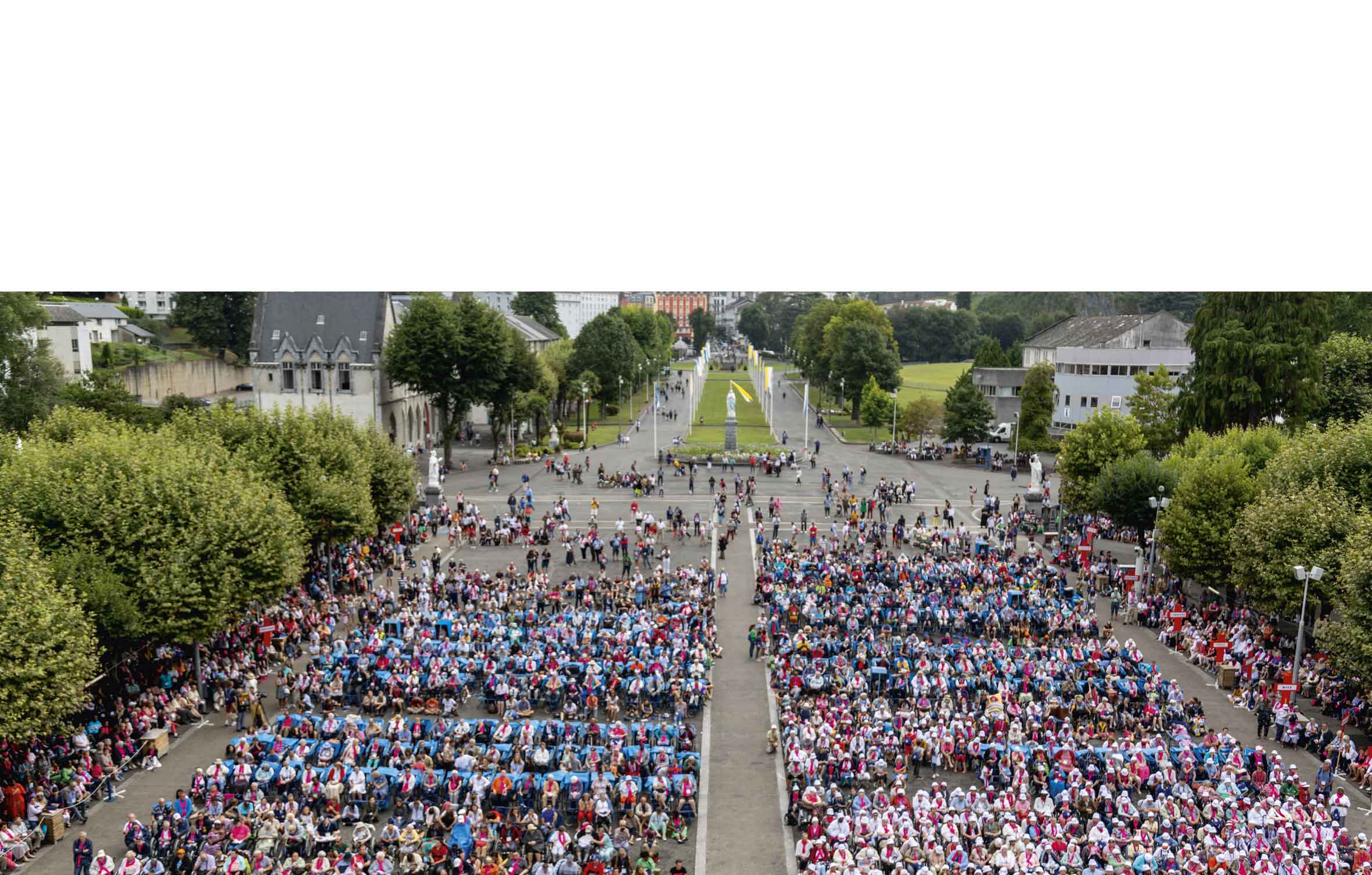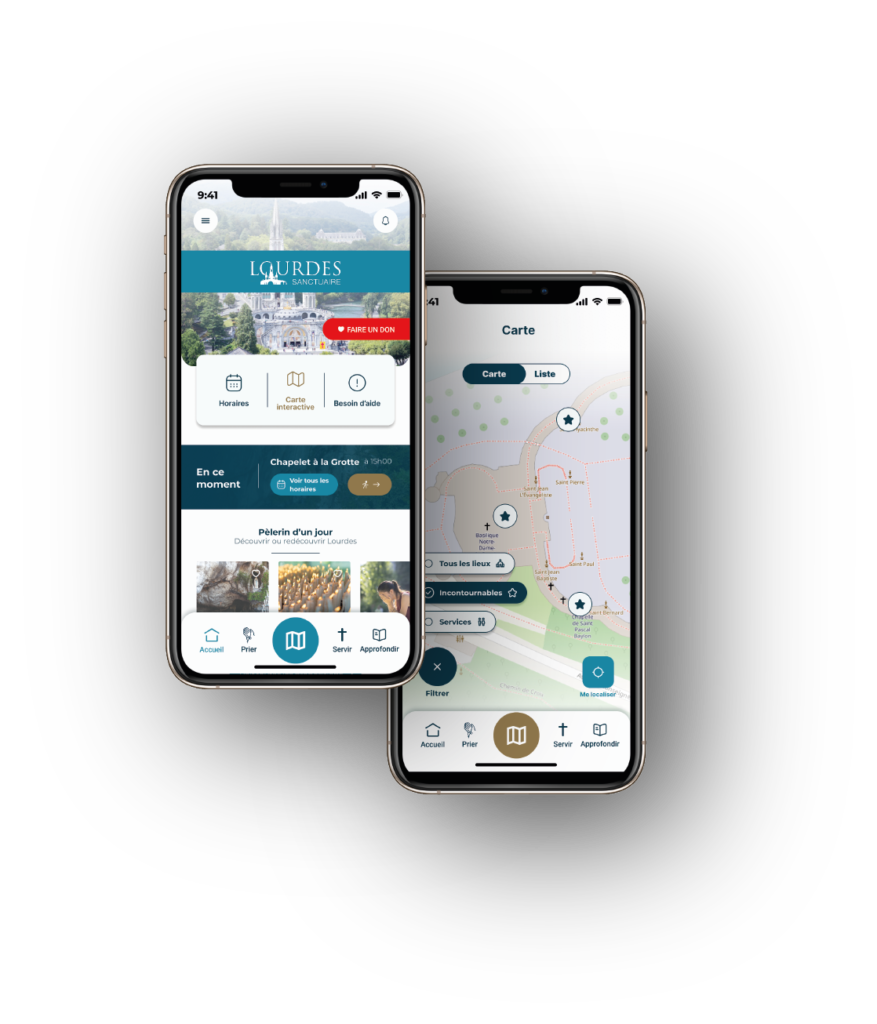Firstly, it means to leave, to leave your daily life, your habits. More than a trip, it is a genuine opportunity to take the time to reflect, either alone or with others, to create connections with kindness and joy while you sing, walk, talk and pray, for those who want to. Pilgrimages are part of the history of Lourdes and help to forge all sorts of connections.
Why come on pilgrimage to Lourdes?
During the thirteenth apparition, the Lady of the Grotto asked Bernadette to, “Go and tell the priests to build a chapel here and that people should come here in procession”. In the language of the time, the word “procession” and “pilgrimage” meant the same thing.
The fact that the Virgin Mary made two requests on the same day, that people should come in procession and that a chapel should be built, tells us that we must set out and become “living stones”. Lourdes, the Church, is nothing without people on a journey: on a journey to the one who saved by making Himself one of us.
The word pilgrimage is singular, but it is lived in the plural
If you come to Lourdes you will quickly realise that Lourdes is a place where difference is everywhere, and it makes everybody one united people, one single heart turned towards Mary who takes us by the hand to lead us to her Son.
In Lourdes, you will find organised pilgrimages and individual pilgrimages. You will also find visitors who become pilgrims. The grace of Lourdes touches and transforms.
You will find diocesan pilgrimages from your area, national pilgrimages (like the National pilgrimage, the Rosary Pilgrimage…) and international pilgrimages (like the International Military Pilgrimage, the Order of Malta…). You will also find themed pilgrimages (e.g. Lourdes Cancer Hope, the FRAT…), and those organised by religious families (Franciscans, Jesuits…).













